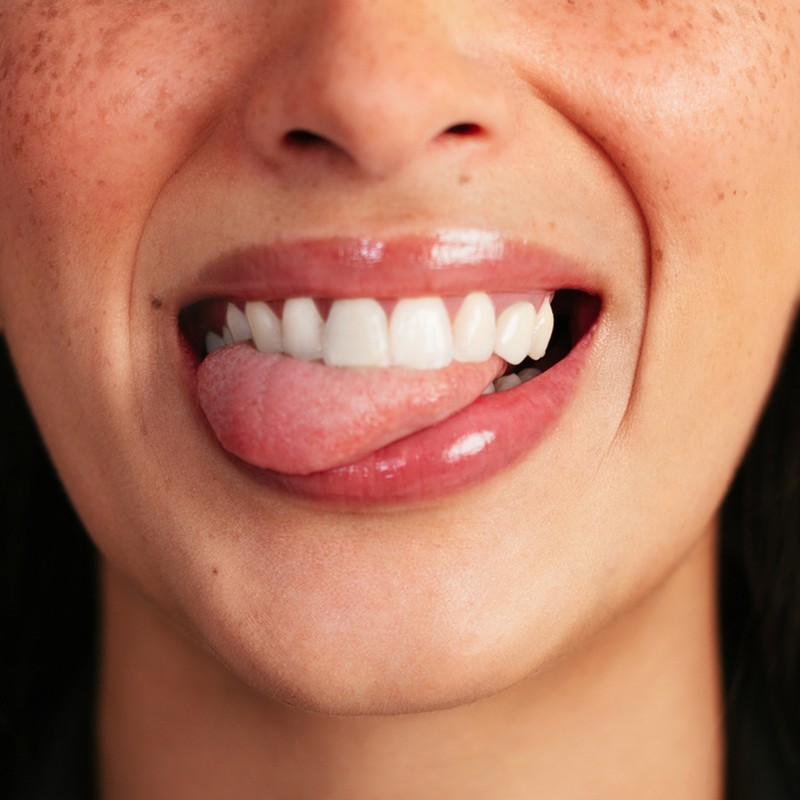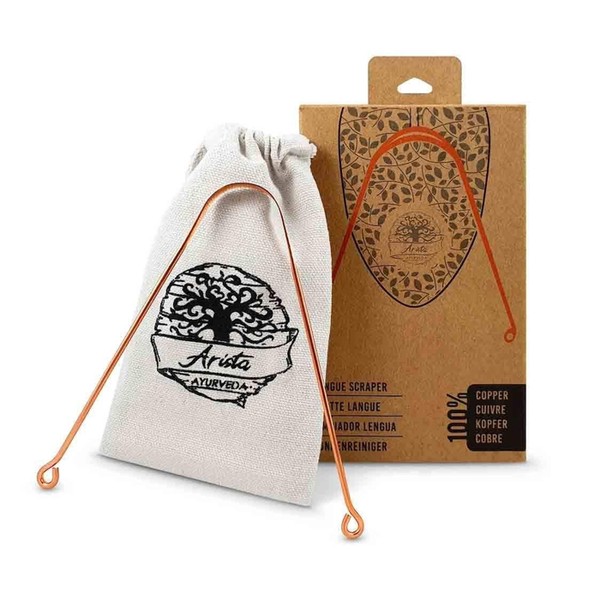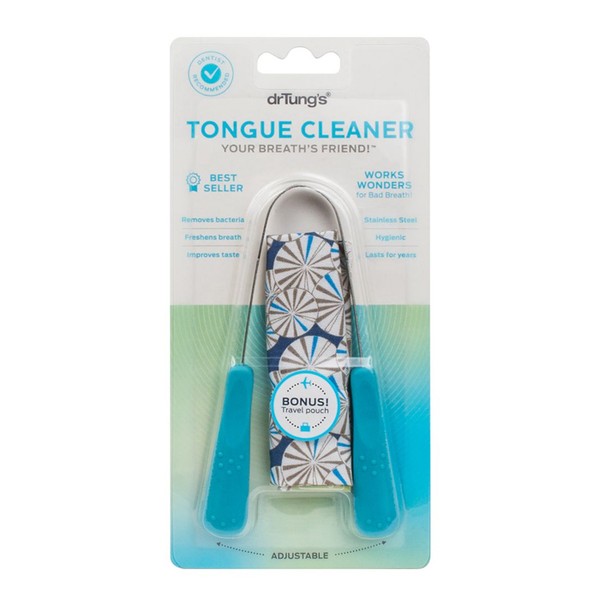
Should You Be Tongue Scraping?
It’s Linked To Ayurveda
You brush and floss your teeth, but do you scrape your tongue? This ancient oral care technique has been practised for thousands of years, but has recently reappeared on the western wellness radar. As Maeve O’Sullivan, traditional Chinese medicine practitioner and co-founder of Escapada Health, the renowned holistic retreat which champions tongue scraping, explains, “The practice involves scraping your tongue gently with a tool to clear toxins, bacteria and dead cells. It’s a simple daily cleansing practice, exactly like brushing your teeth.” Claire Paphitis, aka The Ayurveda Coach, adds that it’s a self-care ritual with added health benefits. “Getting into the habit with a routine brings a sense of purpose to your day – this is written in ancient Ayurvedic texts. At the same time, it helps remove any white coating, which signals ‘ama’ (the Ayurvedic term for toxins) in the body and freshens breath. In a nutshell, it will boost you mentally and physically.”
The Technique Is Simple
Tongue scraping is as straightforward as it sounds, says Maeve. “Standing in front of a mirror, scrape your tongue by holding the two ends of your scraper in both hands, sticking out your tongue and placing the scraper as far back on your tongue as possible. With firm but gentle pressure, scrape the surface of your tongue in one long stroke. Rinse your scraper and repeat until your tongue feels clean and is free of coating – this can take anywhere between five to ten scrapes.” The only rule you need to know is that tongue scraping should be done first thing in the morning to remove bacteria that has built up overnight as your body detoxifies.
It Will Enhance Gut Health
This Ayurvedic bathroom accessory may be understated in looks, but it’s health benefits can’t be downplayed, especially when it comes to gut health. In Ayurveda, optimal digestion is considered to be the foundation of health, and given digestion begins with taste, it’s vital to remove any toxins that may obstruct optimal functioning. “Your mouth is home to hundreds of different microorganisms that make up an important ecosystem in your mouth,” Maeve explains. “Your mouth is also the starting point of your GI tract, meaning gut health begins in the mouth. The idea of tongue scraping is to clear the build-up of bacteria that can cause oral disease but also prevent toxins from moving down your GI tract and damaging your gut health.” Scraping the tongue will also activate saliva production and make your taste buds more sensitive, allowing you to better taste your food.
Your Cardiovascular Health Could Benefit
Research has suggested a link between oral health and the cardiovascular system. Several species of bacteria that cause gum disease have been found in the plaque in the heart’s arteries – and this plaque can lead to a heart attack. Studies by Harvard University have also suggested the toxins released by oral bacteria could affect blood vessels or cause blood clots. Moreover, studies imply inflammation of the mouth can increase inflammation elsewhere in the body, including in the arteries, increasing the risk of a heart attack or stroke. The experts say tongue scraping is a simple way to quash bacteria, reduce inflammation, and possibly prevent future health problems – it’s clever stuff for something so simple.
Dentists Give It The Thumbs Up
It’s not just Ayurveda that recommends tongue scraping. Dental research has shown tongue scraping is even more effective at removing toxins and bacteria from the tongue than a toothbrush. “When we talk about bad breath, we’re generally talking about an imbalance in the oral microbiome,” explains dental surgeon Dr Maria Papavergos. “With bad breath, we see an increase of odorous, anaerobic bacteria in the mouth, and these bacteria tend to dominate the surface of the tongue. One simple way to remove bacteria is to add tongue scraping into your routine.” Maria adds tongue scraping could help you keep on top of your health, too: “It encourages you to look at your tongue and become more familiar with it, meaning you’re more likely to notice any changes in the mouth that could be the early signs of disease or even cancer.”
Just Remember To Keep It Clean
Just like you change your toothbrush head, it’s vital to keep your tongue scraper clean. “Try putting your tongue scraper in a cup of boiling water for a few minutes each morning after using it. I do this while I’m making my first cup of tea of the day – it’s a great way to kill two birds with one stone,” Claire recommends. “Get into the habit of cleaning your scraper daily and always make sure each member of the family has their own. After all, you wouldn’t share a toothbrush.”
They’re Pretty Easy To Find
Tongue scrapers are inexpensive, and can be found at most health food shops as well as online. Just be sure to choose a durable option, says Claire. “Copper tongue scrapers are a popular choice as copper is naturally antimicrobial, but stainless steel varieties are also great in terms of price and durability.” Maeve agrees, adding both copper and stainless steel scrapers are also eco-friendly options and are the easiest to keep clean.
Balance Your Agni: Essential Ayurveda by Claire Paphitis is published by Ebury, Penguin, priced £8.99. For more information on Escapada Health, visit EscapadaHealth.com. Follow Dr Maria Papavergos @TheLifestyleDentist.
Ready to start scraping? Shop our pick of the best tools here…



*DISCLAIMER: Features published by SheerLuxe are not intended to treat, diagnose, cure or prevent any disease. Always seek the advice of your GP or another qualified healthcare provider for any questions you have regarding a medical condition, and before undertaking any diet, exercise or other health-related programme.
DISCLAIMER: We endeavour to always credit the correct original source of every image we use. If you think a credit may be incorrect, please contact us at info@sheerluxe.com.

